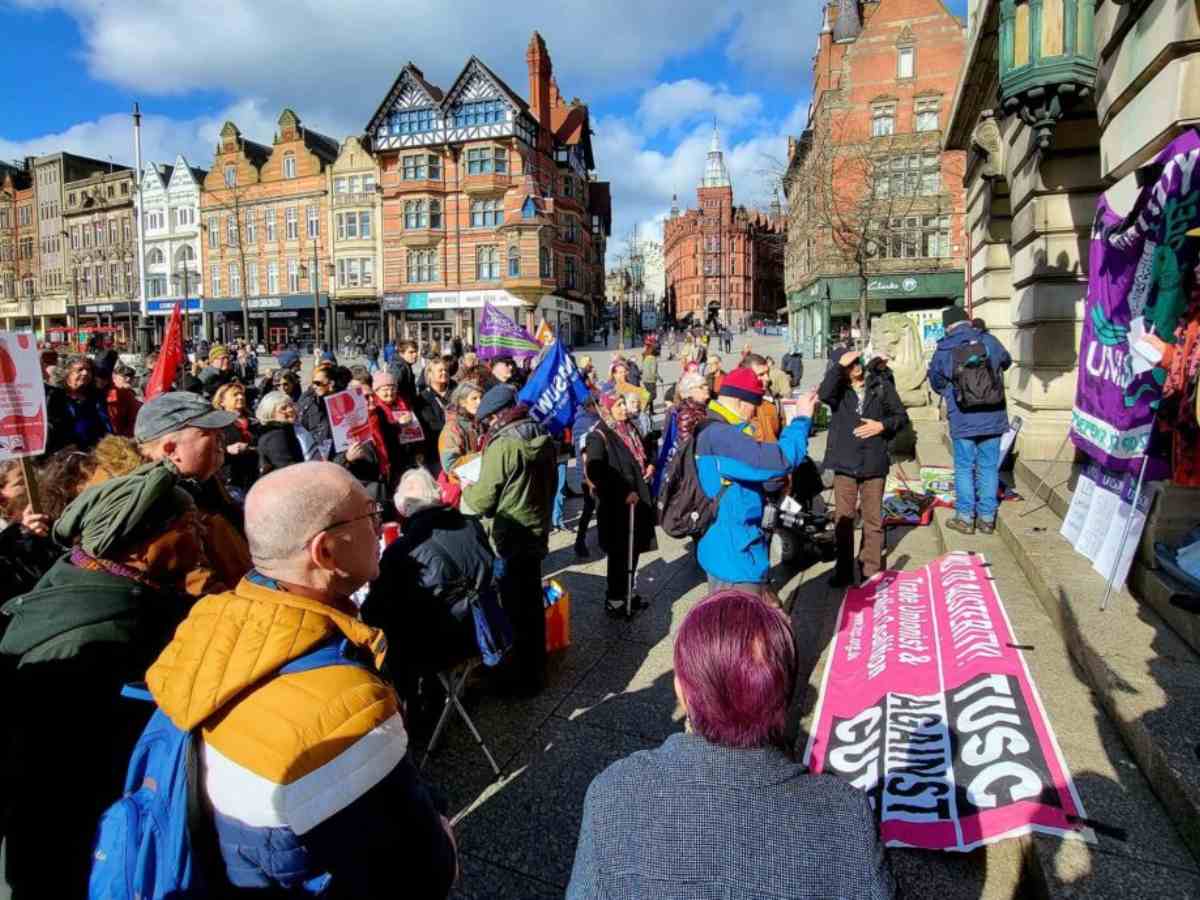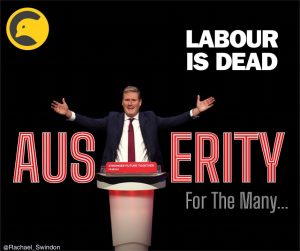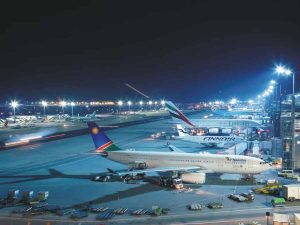The Trade Unionist and Socialist Coalition (TUSC) has published its annual directory of the statutory elections for the year ahead, this time the English local council elections scheduled to be held on Thursday 1 May 2025. These contests will be the first big electoral test of the Keir Starmer Labour Party government and its ‘tough choices’ Austerity 2.0 agenda – and the TUSC is already taking the government to task.
TUSC: councils in a dire situation
The dire financial situation facing councils and the vital local public services that they provide made it onto the pre-election ‘shit-list’ prepared by Starmer’s advisors of the early problems that an incoming government would have to deal with.
One immediate issue was whether or not the chancellor Rachel Reeves would continue the government support for councils’ Household Support Fund (HSF) schemes which was due to expire at the end of September before 30 October’s budget. She had identified this spending as part of the so-called ‘black hole’ commitments that had to go.
At an annual cost of around £1 billion, the HSF has been used to fund holiday food vouchers for pupils on free school meals, support food banks, and provide local welfare crisis grants for furniture needs and other emergencies.
Sensing another pensioners’ heating allowance-style furore, Reeves has been forced to extend HSF funding beyond September for another six months. The pressure will now be on for local councillors to declare that they will refuse to implement HSF cuts whatever future funding decision is made in October or April and pass the bill back to the government.
Growing council funding crunch
The threat to the already inadequate Housing Support Fund it is only one of the multiple crises facing council-provided local public services.
The Local Government Association and the County Councils Network have called for an urgent injection of £2.2 billion to stop special educational needs and disability (SEND) services in mainstream schools from being overwhelmed.
While the Labour government has abandoned the plan for a lifetime cap on people’s social care costs – relieving an immediate cash crunch for councils but delivering a huge blow to many care recipients – the sector is on its knees. Last year 28,655 old people died waiting for care they never received, with councils unable to hire enough care workers with the pay and conditions on offer. This summer over 130,000 care jobs were unfilled – it would cost £4 billion to align pay for care workers with two or more years’ experience to the equivalent rate in the NHS.
Meanwhile the RAC has recorded the poor condition of roads, 98% of which are maintained by councils, as the greatest concern of motorists – ahead even of the cost of insurance or fuel – with an estimated £16bn backlog of repairs. And in another area of council responsibility – the annual flood-prevention drainage levy – costs have risen 30% in the past two years.
All these services, and many more, are provided by those councils with elections next year. A continued austerity squeeze on them – maybe as Reeves allows council tax to rise in the October budget or ‘redistributes’ local government funding from the so-called ‘Tory shires’? – will generate protest and opposition at the ballot box next May. But where will it go?
Where will ballot box anger go?
The dominant party in the councils with elections in May 2025 are the Tories, who had over 1,380 councillors elected in 2021. Labour then won 335 seats, almost the same number as the Liberal Democrats on 313. But these councils are not alien ‘Tory territory’, covering as they do important working class communities who will be looking for an alternative to all the mainstream parties. An anti-cuts, anti-austerity election stand is vital and TUSC will work with others to ensure that one is mounted.
One factor though that will be different to both the 2024 local elections and the general election is the weight of workers and others from a Muslim background who will be able to vote in May 2025. In the 92 parliamentary constituencies where a tenth or more of the population identify as Muslim, Labour’s vote fell from 2.41 million in 2019 to 1.58 million in July, a drop of 34%. Alongside Jeremy Corbyn, four independent MPs were elected in these seats.
Other anti-war Independents and Workers Party candidates also polled significantly higher where they stood in these constituencies than in other seats they contested: an average 16.6% share for anti-war Independents compared to their 2.4% vote in other seats, and 6.7% for the Workers Party compared to their average 1.5% score elsewhere. But only six of the 92 parliamentary constituencies are in local authorities with elections next year. The rest won’t have a chance to vote in May 2025.
Over 170 independent or ‘local residents party’ candidates were elected in the 2021 council contests – but they were not of the same character as the 2024 anti-war independents. A working class, socialist alternative is necessary.
TUSC: prepare to stand
TUSC has stood before in next May’s election cycle and this year fielded 91 candidates in those district councils which will have county council elections in 2025 (out of the 274 candidates we stood in total). We are involved in discussions on an all-Britain level with some of the 2024 independents who are organising in the Collective network and the Workers Party has been sending observers to the TUSC steering committee meetings since 2022.
TUSC said:
A united, anti-war, anti-austerity election stand must be possible – local discussions and planning should begin now.
Individuals seeking to become a TUSC candidate are expected to support the basic socialist anti-austerity core policies of our coalition for the relevant election. The current core policies platform for local council candidates can be seen here.
In the context of a new Labour government the TUSC all-Britain steering committee will be reviewing the local elections core policy platform at its autumn meetings. All suggestions for what an updating of the platform should include are welcome and should be sent to the TUSC national election agent, Clive Heemskerk, at [email protected], by Friday 11 October.
Featured image via TUSC




